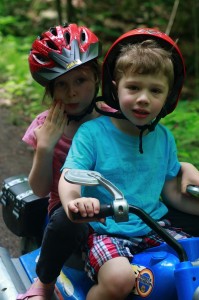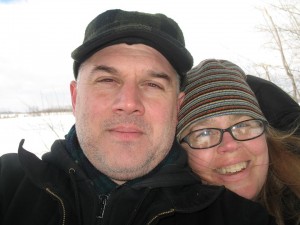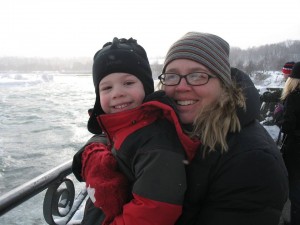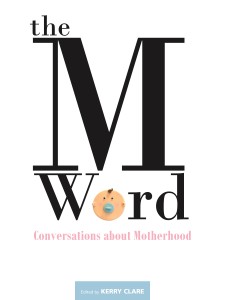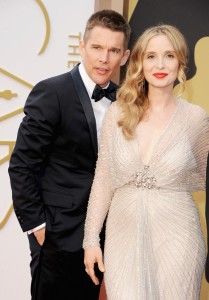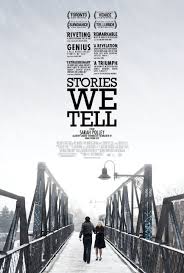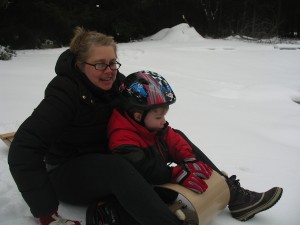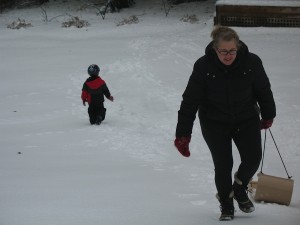The summer has arrived, and we are in full cottage mode. We’ve already spent about 15 days there, off and on over the last little while, and I’m looking forward to a busy summer of even more weekends, even more family, even more visits, even more swimming, and even more nights staying up too late watching movies or playing cards.
My cousins from the west coast were here at the end of June, beginning of July–more like brothers to me, they are a pair (one older, one younger) and we are a pair (one older sister, one younger brother), and the four of us have played together at every stage of our lives. Having our fourth here, with his wonderful wife, and spectacular kids meant the cottage property was filled with my relations, and that felt right. It was chaotic and fun and the kids are all at such fun ages at the moment, playing together, not fighting too much, waking up with juice popsicles, and drawing pictures, sharing lunch, and their toys. Watching them made me feel very lucky for being alive–I know it sounds hokey. But every year, every month, every hour I get to spend being a parent is another one that I have survived in terms of the disease.
We are exhausted, most of the time. But I’m finding the days easier. Whether it’s riding my bike or eating a bit better (more fruit, homegrown lettuce!) or less medication (um, yes!), the usual bits and bobs of a disease-ridden life are quiet. Bloodwork only once every three months. Doctors every six. Deep breathing when I can.
The other morning, my boy clamoured onto our bed and said, “What fun thing are we going to do today mummy? Do you want to ride our bikes up the path?” And I laughed, and said, “What a good idea.” Except we spent Canada Day out with my dad, and he had just as much fun there as he would have on his bike. Oh, to have a life at the moment that’s utterly and completely punctuated by fun. That time and space for him are defined by the exciting events that will unfold throughout the day. It’s a wonder to have a 3.75-year-old. Even if there are still tantrums (oh goodness) and tempers (wow) and outright violence (helicopter arms, watch out!), there’s also the wonder of his smile and amazing giggle, the joy in him learning to swim, the brilliance of his “H’s” as he learns to write.
And speaking of writing–I’ve managed, over the last little while, to finish the second draft of a second novel (my first firmly in the drawer never to see the light of day, wow, that was hard to accept). And I like it, well, I like the ending, and that’s about as much as I’m going to say about that. I’m squeezing time in where possible, and all of my routines are working for me. My garden is growing. Some weight has finally come off. I don’t know what to do, really, when my life is this good.
One thing is for sure, I’m not going to wait for the second shoe to drop. I’m going to keep my foot up, and pedal along as if this is what it’s meant to be, how my life is meant to be, happy, healthy, and laughing at the next crazy sentence to come out of our boy’s mouth.
